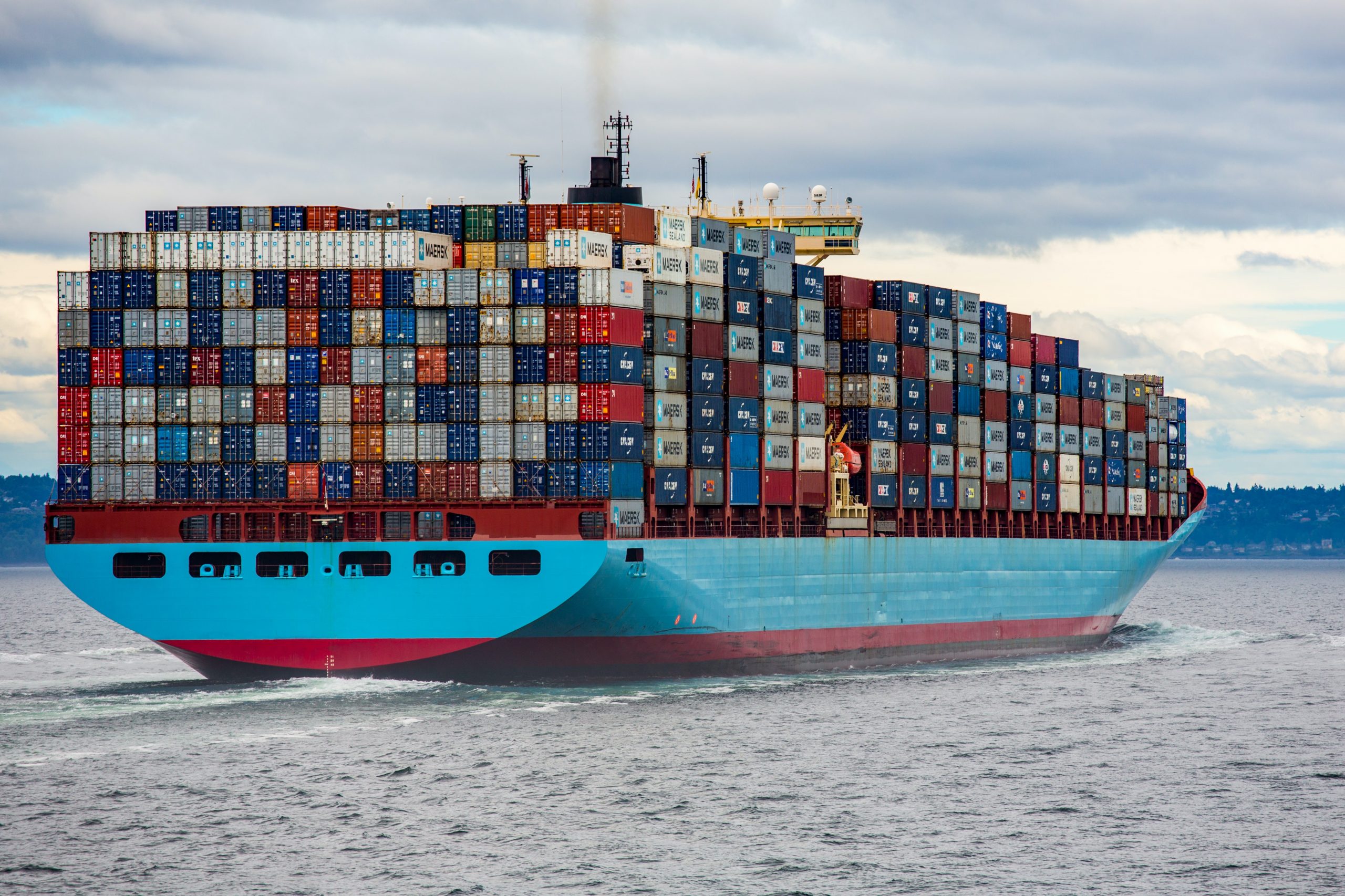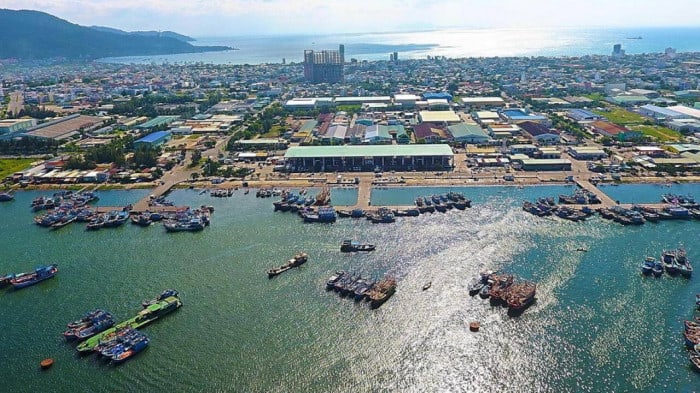Risks of ‘doing business at the ocean’ by exporting enterprises
01/04/2022The number of Vietnamese enterprises being scammed when trading is increasing and occurs in every market, from Africa, India to developed countries such as the United States, the Netherlands, Italy…
In recent years, The Vietnamese Trade Counselor Abroad has constantly warned about fraud when businesses trade with foreign partners, especially at sea when the number of Vietnamese enterprises being scammed increases. In the past, they were tricked into less commercial countries such as Africa, India, now in developed countries such as the US, the Netherlands, Italy … I’ve encountered similar cases as well.
Before the 36 lost control cashew containers, in 2019, the enterprises exporting pepper to Senegal were also scammed when the buyer received the set of documents but did not pay. The Vietnamese export company contacted the buyer many times but was not allowed. The buyer bank in Senegal responded, the signatory receiving the set of documents was not their employee. Finally, Vietnamese enterprises have to ask the Vietnamese Trade Service to “collect debts” on their behalf.

Named the “king” of Vietnam, but Mr Phan Minh Thong, Chairman and General Director of Phuc Sinh Group, must also acknowledge that doing business on the high seas poses many threats.
This danger may come from the export markets themselves. For example, developing markets such as Africa, the Middle East, Turkey, India… are more at risk. But for the most part, Vietnamese businesses get in the way of payments, buyers by sophisticated tricks have stolen, exchanged documents or received goods but did not pay or refuse to receive goods when the containers arrived at the port.
Mr Thong assessed the 36 container cases as a loss of control like the case of the business he encountered in 2007. At that time, the buyer offered large quantities of pepper to Bulgaria and he almost exported 37 containers at their urging. What is common is that buyers all request payment via Turkish banks.
“At that point, the buyer constantly asked us for the bill of lading code. Our treatment is not to give the bill of lading number or set of documents to the partner, ” Mr Thong said. As a result, Phuc Sinh was lucky enough to avoid losing his goods.
According to Mr Thong, in the case of 36 containers exported to Italy, the big risk is that the buyer also does not deposit anything for this shipment. With Phuc Sinh in 2007, due to the large value of the shipment, the enterprise requires the partner to deposit 10% of the shipment value, about 243,000 USD.
“The business must receive a deposit, do not give the bill of lading number to the partner in any situation. In this case, losing the bill of lading and not receiving the deposit, makes the business more disadvantaged, “he commented.
Mr Nguyen Dinh Tung – General Director of Vina T&T Import and Export Company – said that exporting goods by sea is risky at any stage if not carefully calculated. Even if the two parties choose the payment method T/T – (Telegraphic transfer, i.e. wire transfer), there is a provision, the importer paying a deposit to the seller in advance can still be at risk. That is when the goods docked, the buyer looked for every reason to cancel. With fresh agricultural products, in this case, the damage is large, the returned goods are at risk of damage because of the long moving process.
However, this is less the case when doing business with a long-term partner, but is more likely to happen with a new partner. Therefore, Mr Tung believes that it is necessary to thoroughly learn about the business history of the new partner and have certain binding regulations (depending on the case).
With 36 containers of cashew nuts out of control, Tung said that it is possible that the seller has not taken the initiative in payment methods and put too much trust in export brokers – the parties who are good at “promising”.
At the same time, Mr Tran Huu Hau, Deputy General Secretary of Vietnam Cashew Association (VINACAS), said that it is necessary to frankly see the rush of cashew enterprises. The 36 lost control containers indicate that the seller has not thoroughly learned about the buyer and believes in the broker process. When the risk is hard to find someone to “hold his hair”. On the other hand, in the payment method, the business lacks constraints.
In current international trade, according to Tung, D/P (Documents against Payment), T/T (electronic money transfer) or L/C (Letter of Credit) payment methods are common. In particular, D/P – the method that enterprises when exporting 100 used cashew containers – is the riskiest but the most flexible, according to Tung.
With D/P, the bank only acts as a collection intermediary, ensuring that it is not responsible for verifying the credit of the collection bank abroad, or the import business. T/T and L/C both require the buyer to pay the deposit in advance, at which time the bank plays a guarantee role. The bank will pay the seller if they provide sufficient set of documents as stipulated in the contract and the buyer is also guaranteed by the bank that the goods will be delivered.
Therefore, Tung advised businesses to choose T/T or L/C to reduce risks when selling to foreign partners. At the same time, for new customers, it is important to tighten payment rules and delivery methods and documents.
But the reality of commercial transactions shows that sometimes Vietnamese enterprises are weak when they have to depend on the buyer and they are allowed to actively choose the payment method.

According to Nguyen Van Tien, arbitrator, Vietnam International Arbitration Center (Viac), D/P payment method, there are many forms of document exchange. Often enterprises use the form of bill of lading issued by the collection bank, delivered by the collection bank. That is, only when the buyer pays the bank, the bank signs the bill of lading, gives it to the buyer to pick up the goods. If in the above case, the seller knows the law and makes the bill of lading in this way, even if the voucher is lost, anyone with the voucher in hand can not get the goods. But in the case of 36 containers of cashew nut, the business chooses the form of giving documents and goods directly to the buyer, so this is a risk.
“This is the dark side of foreign trade,” said Tien. Because if the delivery directly to the buyer occurs only often in two cases: the parent company deals with the subsidiary, or the affiliates deal with each other or are long-term partners, the value of the shipment is small… In any case, only the goods should be delivered on the order of the collecting bank, to ensure safety. This is the most negligent incident.
The lesson learned from this incident, according to Tien, is that the business cannot be truncated in international trade transactions. If there is a lack of knowledge in the transaction, further reference should be made to the export advisory bodies. In addition, exporting enterprises need to verify customers through channels; actively draft contracts to understand the obligations of the parties, as well as the terms of compensation and exemption.
According to Mr. Thong and Mr. Tung, in addition to choosing a reputable partner, the business must require the buyer to make a deposit if the value of the shipment is large. “If the buyer is a big, reputable business then we can send the wrong documents, they will also send them back to the seller,” Thong said.
In the case of working through brokers, Hau said that the business needs to verify the role and capacity of brokers. In addition, the business also needs to verify the customer information that the broker provides through various channels to make accurate decisions.
According to the Vietnamese trade in Italy, to know the partner information, the enterprise can contact the Vietnamese Trade and Embassy in the countries for verification support and issues related to import and export before signing the contract.
Source: VnExpress
Must Read
You may be interested in


More than 236 million tons of cargo through seaports in 4 months

Ha Tinh has made many efforts to attract investment and develop the seaport system

The shipping industry dreams of another big year of profit

Develop container team to increase motivation for import and export growth

Import and export of Ho Chi Minh City impressive growth in Q1/2022

GDP in the first quarter increased by 5.03%

Risks of ‘doing business at the ocean’ by exporting enterprises









